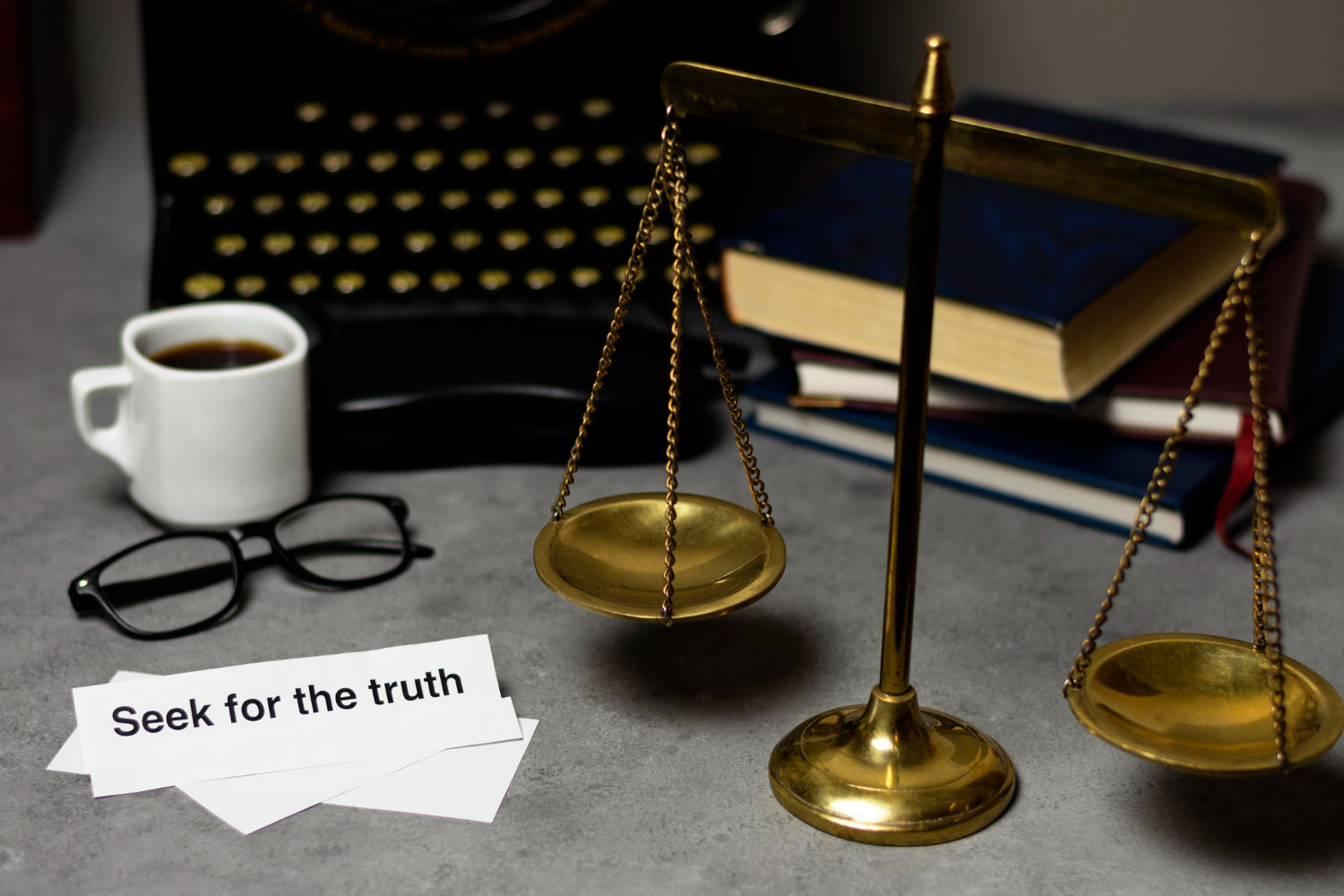In the bustling world of finance, where trust and integrity are paramount, the news of a major lawsuit can send shockwaves through the industry. Such is the case with Spartan Capital Securities, LLC, a New York City-based investment banking and brokerage firm that has long prided itself on offering personalized financial services to its clients. However, recent legal challenges have cast a shadow over the firm’s reputation, drawing scrutiny from industry insiders, investor advocacy groups, and government watchdogs alike. This article will explore the Spartan Capital Securities lawsuit, examining the origins of the case, its implications for the financial sector, and what it means for investors and the broader financial community.
The Rise of Spartan Capital Securities: A Brief Overview
From Humble Beginnings to Industry Recognition
Spartan Capital Securities, LLC was established with a mission to provide tailored financial services that meet the unique needs of each client. Over the years, the firm has grown its portfolio to include a wide range of services, such as brokerage, investment banking, and wealth management. Spartan Capital built its reputation by offering personalized advice, focusing on long-term relationships, and striving to deliver exceptional value to its clients.
The firm’s approach quickly resonated with a diverse clientele, from individual investors to large corporations. Spartan Capital’s ability to navigate complex financial landscapes and provide strategic guidance helped it earn a place among the notable players in the industry. However, like many firms in the high-stakes world of finance, Spartan Capital has found itself entangled in a legal battle that threatens to undermine its standing in the market.
The Importance of Reputation in Financial Services
In the financial services industry, reputation is everything. Clients entrust their assets, savings, and financial futures to firms like Spartan Capital based on the belief that these institutions operate with integrity and transparency. Any hint of misconduct or legal trouble can have far-reaching consequences, not just for the firm involved but also for the broader industry. The lawsuit against Spartan Capital has raised questions about the firm’s practices and brought to light concerns that could potentially shake investor confidence.
The Lawsuit Against Spartan Capital Securities: Understanding the Allegations
What Led to the Legal Battle?
The lawsuit against Spartan Capital Securities stems from allegations that the firm engaged in practices that may have violated securities laws. While the specifics of the case are complex and still unfolding, the core issues revolve around claims of improper conduct, including potential misrepresentation of investment opportunities, failure to disclose important information to clients, and conflicts of interest.
These allegations have drawn the attention of regulatory bodies, including the Securities and Exchange Commission (SEC), which has launched an investigation into Spartan Capital’s practices. The firm’s actions are being scrutinized to determine whether they adhered to the standards expected of financial institutions, particularly in terms of protecting investors and maintaining market integrity.
Key Allegations and Their Implications
The key allegations against Spartan Capital Securities have significant implications for both the firm and its clients. If proven, these allegations could lead to severe penalties, including fines, sanctions, and possible restrictions on the firm’s ability to operate. For investors, the situation raises concerns about the safety of their investments and whether they have been adequately informed about the risks involved.
One of the central issues in the lawsuit is the accusation that Spartan Capital may have engaged in deceptive practices, such as misleading clients about the nature of certain investments or failing to provide complete and accurate information. Such practices, if confirmed, would constitute a breach of the fiduciary duty that financial advisors owe to their clients—a duty to act in the clients’ best interests and to provide honest and transparent advice.
Another critical aspect of the case involves potential conflicts of interest. The lawsuit suggests that Spartan Capital may have placed its interests ahead of those of its clients, leading to decisions that were not in the best interests of investors. Conflicts of interest are a major concern in the financial industry, as they can erode trust and lead to biased recommendations that benefit the firm at the expense of the client.
The Regulatory Response: SEC and Other Watchdogs Step In
The Role of the SEC in the Investigation
The Securities and Exchange Commission (SEC) plays a crucial role in maintaining the integrity of the financial markets by enforcing securities laws and protecting investors. When allegations of misconduct arise, the SEC has the authority to investigate and, if necessary, take enforcement action against individuals or firms that violate these laws.
In the case of Spartan Capital Securities, the SEC’s involvement signals the seriousness of the allegations. The commission is likely examining whether the firm’s actions constituted violations of securities laws, such as fraud, misrepresentation, or failure to disclose material information. The outcome of the SEC’s investigation could have significant consequences for Spartan Capital, including potential fines, penalties, and other sanctions.
Investor Advocacy Groups and Their Concerns
Investor advocacy groups have also expressed concern about the allegations against Spartan Capital Securities. These organizations, which work to protect the rights and interests of investors, have raised questions about whether the firm’s practices may have harmed clients and whether adequate measures were in place to prevent such issues.
For these groups, the lawsuit highlights the importance of vigilance in the financial industry. They argue that cases like this underscore the need for stronger oversight and enforcement to ensure that firms adhere to the highest standards of conduct. By advocating for stricter regulations and more robust enforcement mechanisms, these groups aim to protect investors and maintain confidence in the financial system.
The Impact on Spartan Capital Securities: Reputational and Financial Fallout
Reputational Damage and Loss of Trust
One of the most immediate consequences of the lawsuit against Spartan Capital Securities is the potential damage to the firm’s reputation. In the financial industry, where trust is paramount, even the suggestion of misconduct can have devastating effects. Clients who once relied on Spartan Capital for sound financial advice may now question whether their investments were handled properly, leading to a loss of confidence in the firm.
Reputational damage can also affect Spartan Capital’s ability to attract new clients. Prospective investors may be hesitant to engage with a firm that is under legal scrutiny, fearing that their assets could be at risk. For a firm that has built its brand on providing personalized and trustworthy service, the loss of reputation could be a significant setback.
Financial Consequences and Legal Costs
In addition to reputational damage, the lawsuit could have substantial financial implications for Spartan Capital Securities. Legal battles of this nature are often costly, requiring significant resources to defend against the allegations and to navigate the complex legal landscape. The firm may face hefty fines and penalties if the allegations are proven, further straining its financial resources.
Moreover, the uncertainty surrounding the lawsuit could lead to a decline in business, as clients may choose to move their assets elsewhere. This loss of revenue, combined with the costs of the legal battle, could put significant financial pressure on Spartan Capital, potentially impacting its ability to operate effectively.
The Broader Implications for the Financial Industry
Lessons for Other Financial Institutions
The lawsuit against Spartan Capital Securities serves as a cautionary tale for other financial institutions. It highlights the importance of maintaining rigorous compliance with securities laws and ensuring that all practices are transparent and in the best interests of clients. Firms that fail to uphold these standards risk not only legal consequences but also the loss of trust that is so vital in the financial industry.
For other firms, the case underscores the need for robust internal controls and compliance programs. By implementing strong oversight mechanisms and regularly reviewing business practices, financial institutions can help prevent the kinds of issues that have led to the lawsuit against Spartan Capital. Proactive measures can also mitigate the risk of regulatory action and protect the firm’s reputation.
The Role of Transparency and Ethical Conduct
Transparency and ethical conduct are cornerstones of the financial industry, and the lawsuit against Spartan Capital Securities brings these principles into sharp focus. Investors expect their financial advisors to act with integrity, providing clear and accurate information about investment opportunities and potential risks. When these expectations are not met, the consequences can be severe, both for the firm involved and for the broader industry.
The case against Spartan Capital highlights the need for financial institutions to prioritize ethical conduct in all aspects of their business. This includes not only adhering to legal requirements but also fostering a culture of honesty, transparency, and client-centric decision-making. By doing so, firms can build lasting relationships with clients and contribute to a financial system that is fair and trustworthy.
Potential Regulatory Changes
The lawsuit against Spartan Capital Securities may also prompt regulatory bodies to consider changes to existing securities laws or to the enforcement process. If the case reveals significant gaps in the current regulatory framework, lawmakers and regulators may seek to strengthen protections for investors and increase oversight of financial institutions.
Such changes could have wide-ranging effects on the financial industry, potentially leading to more stringent compliance requirements and greater scrutiny of business practices. For financial institutions, staying ahead of regulatory developments and ensuring that their operations are fully compliant will be essential to avoiding similar legal challenges in the future.
What’s Next for Spartan Capital Securities?
Navigating the Legal Battle
As the lawsuit against Spartan Capital Securities unfolds, the firm will need to navigate a complex and challenging legal landscape. This will involve not only defending against the allegations but also managing the impact on its business and reputation. The outcome of the case will likely depend on a variety of factors, including the strength of the evidence presented, the effectiveness of the firm’s legal strategy, and the findings of the SEC’s investigation.
In the meantime, Spartan Capital may need to take steps to reassure clients and stakeholders, such as increasing transparency about its business practices and demonstrating a commitment to ethical conduct. How the firm handles this crisis will be crucial in determining its future in the financial industry.
Rebuilding Trust and Moving Forward
Regardless of the outcome of the lawsuit, Spartan Capital Securities will likely face a long road to rebuilding trust with its clients and the broader financial community. This process may involve significant changes to the firm’s operations, including reforms to its compliance programs and a renewed focus on ethical conduct.
For Spartan Capital, the path forward will require a commitment to restoring confidence in its brand and demonstrating that it is capable of upholding the highest standards of integrity. While the lawsuit represents a significant challenge, it also offers an opportunity for the firm to learn from its mistakes and emerge stronger and more resilient.
Conclusion
The lawsuit against Spartan Capital Securities serves as a powerful reminder of the importance of ethics, transparency, and compliance in the financial industry. As the case continues to unfold, it will offer valuable lessons for other financial institutions and underscore the need for robust oversight and enforcement. For Spartan Capital, the outcome of this legal battle will likely shape its future in the industry, with implications that extend far beyond the firm itself. Whether the firm can successfully navigate this crisis and rebuild its reputation remains to be seen, but the case will undoubtedly leave a lasting impact on the financial landscape.











